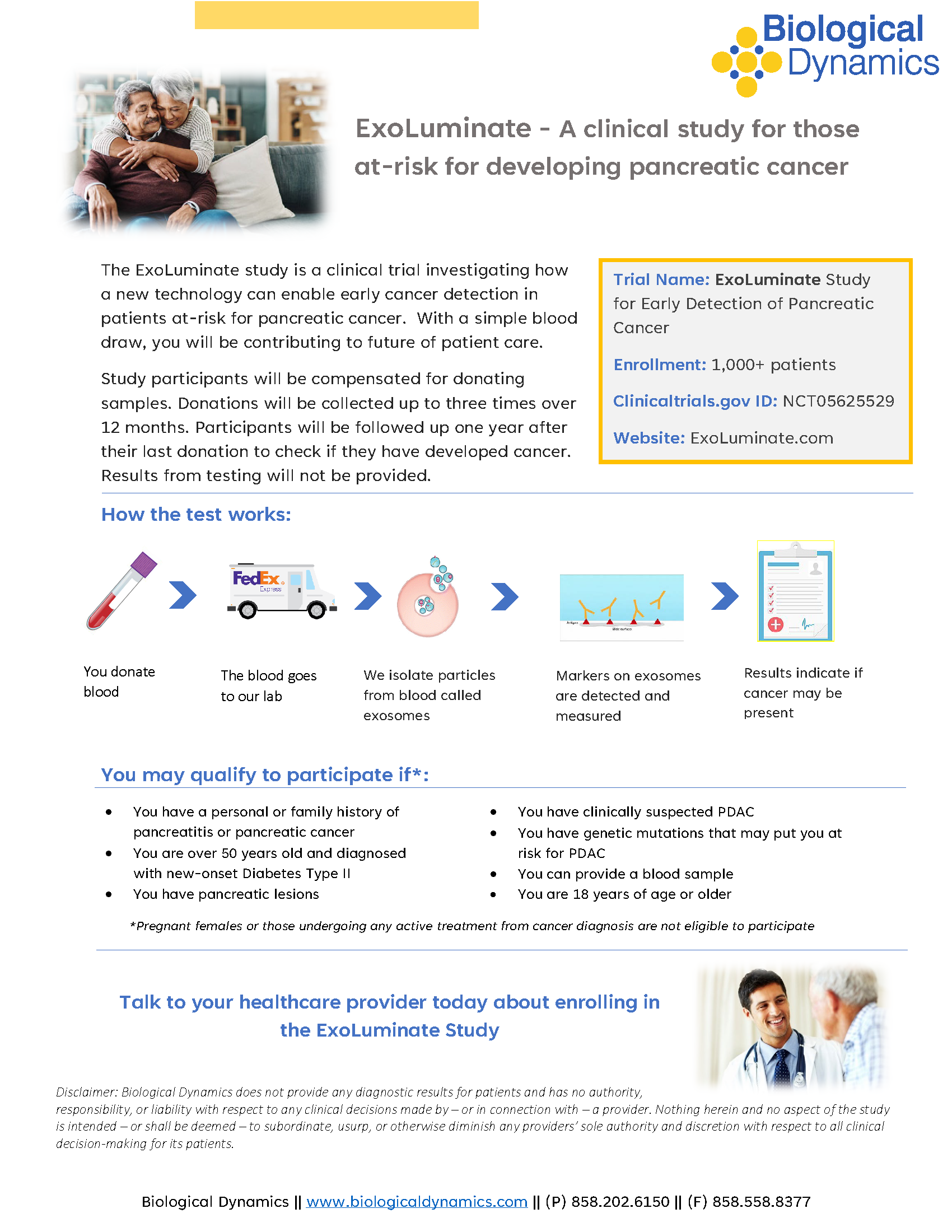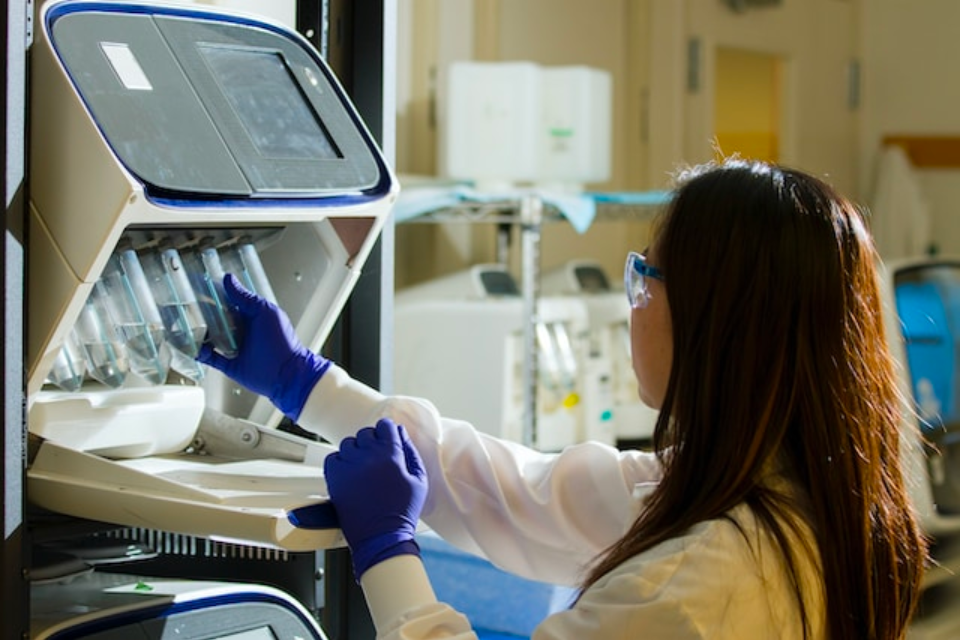Certain people with chronic pancreatitis are at a high risk of getting pancreatic cancer. In fact, people with pancreatitis and PRSS1 mutations (also known as hereditary pancreatitis) should get screened for pancreatic cancer every year.
Unfortunately, for now, there isn’t a test to detect pancreatic cancer early on. To screen for pancreatic cancer, doctors currently use imaging methods like MRI and endoscopic ultrasound to look at the pancreas. However, these tests can be invasive and expensive.
But there is good news. A company called Biological Dynamics is developing a way to find pancreatic cancer early by analyzing blood samples from high-risk individuals. The company uses new technology that looks at and measures markers in isolated blood particles, called exomes, to see if cancer may be present. Exosomes are vesicles released from cancer cells and can contain pathogenic molecules that can be measured. This new approach will make cancer screening easier, and allow doctors to find signs of pancreatic cancer earlier. The blood test isn’t ready yet–they are still testing their methods in a research study to make sure they are accurate. This is where you come in.
At Mission: Cure, we are excited that Biological Dynamics is specifically including pancreatitis patients in their research! This means that (if the study is successful) they will have shown that their blood test can find precancerous or very early stages of pancreatic cancer in pancreatitis patients. Detecting pancreatic cancer early leads to better survival with more options for treatments including surgery. If the clinical trial shows that this test is comparable to standard-of-care methods in detecting pancreatic cancer, it will make doctors more likely to use the test and insurance companies more likely to cover it.
For this reason, we think it is important for pancreatitis patients to participate in this research study. Participants will not get any results; however, they will be compensated and contribute to the future of pancreatic care. The study is called the ExoLuminate Study. Participants must be 18 years old or older, and have one* of the following:
- Pancreatitis (acute, chronic or familial). This includes people with PRSS1 and SPINK1 Mutations.
- Cystic lesions on the pancreas
- Newly-diagnosed diabetes type 2 after age 50
- Family history of pancreatic cancer
- Genetic predisposition for pancreatic cancer
*Pregnant females or those undergoing any active treatment from cancer diagnosis are not eligible to participate.
People who participate will need to give 3 blood samples in 1 year (at no cost to you). Blood samples can be given at your local lab or at your home with the study’s mobile health team.

Get Involved
To get involved with and learn more about this study, visit ExoLuminate.com/join/pancreas-study, email exoluminate@biologicaldynamics.com, or call 858-202-6150. For detailed information about this study, visit ClinicalTrials.gov. Please let them know that Mission: Cure told you about the study!

